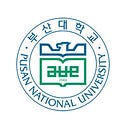PNU Study Examines the Perceptions of Pre-service Teachers on Peer Reaction Video Feedback
The study finds that this feedback is useful for discerning their strengths and weaknesses and learning more about teaching by observing and receiving feedback from their peers
Microteaching that uses online tools to enable the evaluation of a teacher’s video-recorded teaching session by their peers has been integrated into many teacher education programs today. Recently, a study by PNU researcher found that such evaluation provided pre-service teachers with helpful feedback on their strengths and limitations, allowing them to evaluate their own performance in a more objective manner. The study also presents practical recommendations to further streamline the feedback process for pre-service teachers.
Teacher training courses are integral to teacher education programs. However, they often offer limited opportunities for novice teachers to practice teaching and receive feedback on their performance. In this regard, peer evaluation of a teacher’s recorded teaching video or “microteaching” is promising. Recently, this method has been integrated into many teacher education programs. Analyzing a peer’s performance can allow a trainee teacher to gain a deeper understanding of their own teaching practice, while providing inexperienced teachers with exposure to a wider range of teaching scenarios before starting their professional career. However, most studies investigating the efficacy of online microteaching videos have focused on an instructor giving feedback to their student, rather than peer video reaction feedback.
Now, however, a new study by Professor Dennis Murphy Odo from Pusan National University seeks to fill this gap. The study, made available online in Sage Journals on 19 November 2023, involved 11 pre-service English teachers recruited from a national university in South Korea, each of whom filmed themselves presenting a 20-minute microteaching lesson. The recorded videos were sent to a course instructor and their peers, who then separately recorded themselves watching and reacting to the video lesson. Lastly, the pre-service teachers were given the peer reaction video recordings and asked to fill out a questionnaire on their perceptions regarding the feedback they received.
The analysis of the collected qualitative data revealed promising results. The participants felt that they learned a lot about teaching by watching and providing feedback on their peers’ video lessons. The reaction videos provided them with helpful feedback on the strengths and limitations of their lessons and an opportunity for objective evaluation of their own performance. Furthermore, this process provided trainees with various perspectives on their teaching and allowed them to see themselves through the eyes of others, which could enhance their reflection skills.
Another benefit of peer reaction video feedback was the ability to provide more concrete feedback on the trainees’ performance. It also enabled the person receiving feedback to see the context of the lesson addressed by the feedback. Some participants also felt that the video format encouraged more honest feedback than that received in a face-to-face feedback session. “The method likely created some psychological distance between the receiver and the giver of the feedback, and this helped reduce the discomfort and potential damage in delivering the feedback,” says Prof. Odo.
However, participants also identified a few downsides to this method. For instance, some trainees felt that they were not prepared for properly conducting a video feedback assignment and needed more guidance. In addition, the potential for technical difficulties worried some participants, and an authentic classroom experience could not be recreated due to the lack of interaction between the feedback provider and receiver. Moreover, some participants felt that it was difficult to share negative feedback, even over video, because of its potential for harming relationships and eliciting sensitive reactions to critical comments.
Furthermore, the study also brings forth a range of suggestions to improve the practice of peer reaction video feedback. It emphasizes the need for comprehensive feedback using more detailed feedback guidelines, such as prescribing a minimum number of comments and sampling lesson activities in advance to improve the peer feedback experience for pre-service teachers.
The findings thus suggest that teacher training programs can incorporate peer feedback reaction videos as a standard component of their curriculum to enhance self-reflection and improve teaching skills among trainee teachers. “Integrating this method in practice could lead to a generation of teachers who are more self-aware, receptive to feedback, and flexible enough to adapt their teaching methods to meet the needs of their students. This could, in turn, lead to improved student outcomes, increased engagement in the classroom, and a more positive learning environment overall,” concludes Prof. Odo.
Reference
Title of original paper: Perceptions of Preservice English Teachers regarding Peer Reaction Video Feedback on Their Microteaching
Journal: Sage Journals
DOI: https://doi.org/10.1177/21582440231210652
About the institute
Pusan National University, located in Busan, South Korea, was founded in 1946 and is now the №1 national university of South Korea in research and educational competency. The multi-campus university also has other smaller campuses in Yangsan, Miryang, and Ami. The university prides itself on the principles of truth, freedom, and service, and has approximately 30,000 students, 1200 professors, and 750 faculty members. The university is composed of 14 colleges (schools) and one independent division, with 103 departments in all.
About the author
Professor Dennis Murphy Odo teaches courses in second language acquisition and literacy instructional methods in the Department of English Education at Pusan National University. He received his PhD in Language and Literacy Education from the University of British Columbia. He has previously served as a public school TESOL methods teacher in Canada and for the Korean Ministry of Education and worked as an Assistant Professor of ESOL/Reading Education in the US, where he taught courses in first and second language reading. His main research interests include learner autonomy, technology, second language literacy instruction, and teacher development.
Website: https://dmodo.pusan.ac.kr/
ORCID iD: 0000–0002–5438–0446
